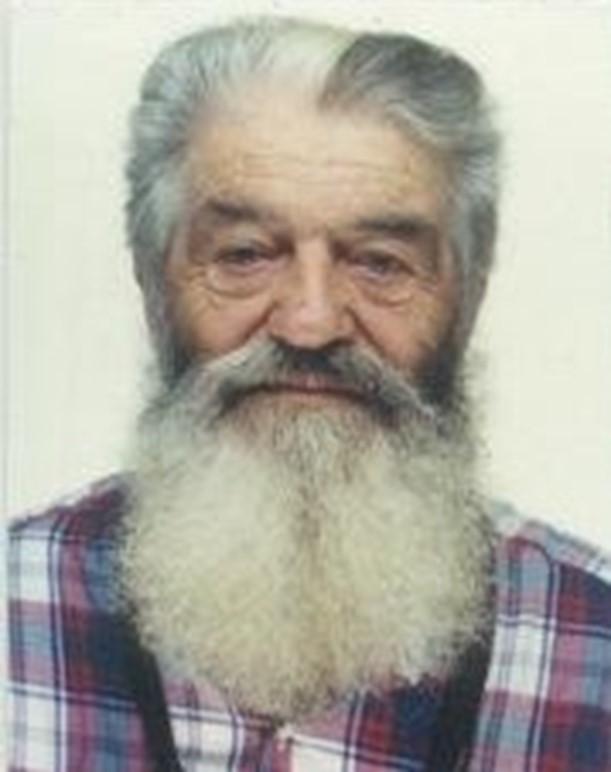Daniel Comboni
Comboni Missionaries
Institutional area
Other links
Newsletter
In Pace Christi
Marchi Antonio
Antonio was born in Santa Maria di Sala (Venice, Italy) on 14 August 1928. He did the novitiate in Gozzano where he took first vows on 5 August 1953. After a few years in Verona, at the Mother House, he was sent to the Pellegrina community as formator of the Brother aspirants. He made his final profession on 15 August 1958 and, after some years at the Rectory in Thiene looking after the house, in 1968 he was appointed to South Brasil and assigned to São Mateus to help run the sawmill and the diocesan printing press.
From 1978 to 1979, he helped maintain the Comboni seminary of Jerônimo Monteiro, assisting especially in Burarama, one of the largest communities of the parish and belonging to the diocese of Cachoeiro de Itapemirim, in Espírito Santo state, made up of Italians originally from the region of Venice.
From 1984 to 1987, he was assigned to Porto Velho, the capital of Rondônia. The city had been chosen by the Provincial Council since it was the capital of Rondônia and with a growing population. The Comboni community was open to all and received not only confreres passing through but also members of CIMI (Indigenous Missionary Council), of OPAN (Native Amazonia Operation) and many other short-term guests. The house became a source of information on all the problems of the territory.
Bro. Antonio also worked in Ouro Preto do Oeste (RO) where he arrived in 1995, the year the new “Mother Church” was inaugurated, taking the place of the old one that had been destroyed by persons unknown five years earlier.
During that period, a group made up of Bro. Antonio, Fr. Manuel Valdez Treviso and the Comboni sociologist Fr. Mansueto Dal Maso, was assigned to indigenous ministry. The CIMI had been set up to defend the rights of the indigenous peoples and to recover their lands, since they were the legitimate owners. Our missionaries sought to spread indigenous culture and religion so that they could be preserved and respected, avoiding any manipulation on the part of the Church or the state.
When Fr. Mansueto left the group in 1985, Bro. Antonio temporarily took responsibility for coordinating indigenous pastoral, working among the Uru-Eu-Wau-Wau, who called themselves Jupaú, present in the north of Rondônia. “The Indios are hungry for dignity, health and education - Bro. Antonio would say – a religion that helps them to live. They hunger for dignity since the foundation of the dignity of a person or a people is to have their rights recognised and respected. What struck me most of all and what is dearest to my heart was the sense of community that a celebration has for them. They have a strong sense of community which does not, however, eliminate diversity but gives it importance by means of songs, games and celebrations that are always carried out simply and fraternally. Everything was shared”.
"One day – writes Fr. Giovanni Munari – Bro. Antonio made it possible for me to accompany him on a visit to the Uru-Eu-Wau-Wau. I greatly admired what I saw. He had won over the Indios and they had allowed him to build a hut in their village that was his home. He knew the people by name, spoke with them, discussed their difficulties and problems and he wrote down the things he needed to get once he returned to the mission: medicine, schoolbooks and tools for the work. He would find them and bring them. He showed many small signs of solidarity and the desire to broaden his range of action so as to overcome the walls of indifference and prejudice surround the indigenous questions. That was his work in the city: to go frequently to the authorities and visit the public administrators and the FUNAI (National Indios Foundation) to try to obtain whatever services the village needed whether in the field of health, education, alimentation or preventive public health”.
In 2003, Bro. Antonio and Fr. John Clark were sent to Alto Alegre, in the far north of the country, almost on the border with Venezuela and a long way from the other communities of the Comboni province. At that time in those communes and in that of Taiano, there was a reserved area of more than 18.000 km², with 16 villages of indigenous Wapichana and Macuxi who lived in small groups of 100 inhabitants surrounded by large farms. The poor land made many indigenous people leave everything and go to the city where they then became dependent upon aid from the government.
The last stage of his mission in Brazil was at São José do Rio Preto (SP). There, Bro. Antonio spent some years at the service of the community. He would go to do the shopping and willingly taught catechism to the youth of the parish of Christ the King, then being served by the Combonis. After some years, he asked to return for good to Italy. He spent three years in Limone, at the native home of the Founder and was then transferred to Castel d’Azzano where he died on 16 January 2021: even though he had recovered from the Covid-19 infection, he never regained his strength and his condition steadily worsened.

